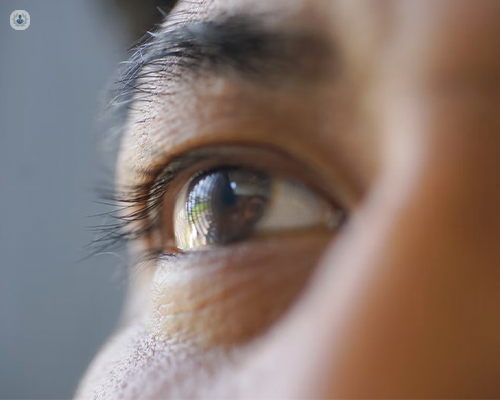How is cataract surgery performed?
Escrito por:Cataracts, a clouding of the lens in the eye, are a common cause of vision loss, especially in older adults. Fortunately, modern medicine offers an effective solution: cataract surgery. This procedure has evolved significantly over the years, becoming one of the safest and most successful surgeries in medicine today, and here to explain more about the surgery is esteemed ophthalmologist, Mrs Kate Barnes.

What are cataracts, and what are the main symptoms?
Cataracts develop gradually and can affect one or both eyes. They are often a result of ageing, but other factors such as diabetes, prolonged exposure to sunlight, smoking, and certain medications can accelerate their development.
Symptoms include blurry vision, faded colours, glare, haloes around lights, and difficulty seeing at night. When cataracts start to interfere with daily activities and quality of life, surgery becomes a viable option.
How is cataract surgery performed?
Cataract surgery is typically an outpatient procedure performed under local anesthesia. The surgeon makes a small incision in the eye and uses ultrasound technology to break up the cloudy lens, which is then removed.
Once the cataract is removed, an artificial lens, called an intraocular lens (IOL), is implanted to restore clear vision. Patients usually experience minimal discomfort during the surgery and can return home the same day.
What does recovery from cataract surgery entail?
Recovery from cataract surgery is relatively quick. Most patients notice improved vision within a few days, with optimal results achieved within a few weeks. During the recovery period, it's essential to follow post-operative instructions provided by the surgeon, which may include using prescribed eye drops and avoiding strenuous activities.
What are the associated benefits and risks?
Cataract surgery offers numerous benefits, including improved vision, enhanced quality of life, and independence. However, like any surgical procedure, it carries some risks, such as infection, bleeding, inflammation, and retinal detachment. Fortunately, serious complications are rare, and the vast majority of patients experience successful outcomes.
To book a consultation with Mrs Kate Barnes today, visit her Top Doctors profile.


